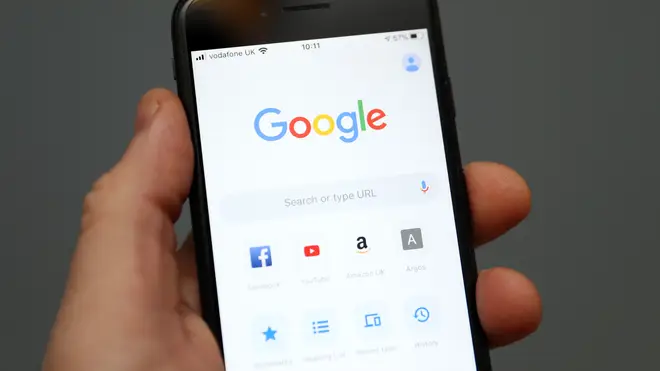
Richard Spurr 1am - 4am
14 September 2020, 00:04

The consumer group is concerned about fake advertisements it found when searching for debt help charities and financial firms.
A stronger clampdown is needed to tackle scam adverts appearing on Google search results, according to Which?.
The consumer group said it had found fake ads for debt help charities and financial firms.
Which? found search results for common saving terms such as “top Isa”, “best bonds” and “best fixed rate bonds” contained dubious adverts for “investment finder” services encouraging people to fill in their details.
One victim lost £160,000 after clicking on an ad for what appeared to be an Aviva investment scheme. Despite trying to make sure the website was legitimate, they ended up speaking to a fraudster.
They were reimbursed under a banking industry code which protects blameless bank transfer scam victims.
Which? said fraudsters have also targeted vulnerable consumers seeking debt help, with “lead generator” ads imitating charities. They encourage them to submit personal details that are then sold on.
People are then contacted and pushed to take on Individual Voluntary Agreements (IVAs). These are legally binding debt repayment plans which may be unsuitable, Which? said.
The consumer group found suspect ads when searching for debt charity StepChange.
Distressed motorists at the roadside after a traffic accident have also been targeted by “click-to-dial” ads that lead those looking for their insurer’s phone number to instead contact claims management companies, Which? said.
Consumers are led to believe these firms are working on behalf of their insurer to submit a claim, however their details are passed on to third-party companies and people can find themselves owing thousands of pounds for services which would have been covered by their genuine insurer.
Which? found search results for “Admiral claims number”, “NFU phone number” and “Aviva claims department” brought up adverts for third party websites referring to themselves with terms such as the “official claims line” and “claims department”.
Google has been working to help tackle fraudulent activity.
Advertisers promoting financial services or products are given 21 days to submit verification documentation – but Which? is concerned this grace period will be exploited.
Which? said Google told it grace periods will be removed for some users from September, but Which? believes all advertisers should be verified before their ads are published. It is urging Google to prioritise removing this grace period for advertisers promoting financial services or products.
Jenny Ross, Which? money editor, said: “People should be able to trust that the adverts they see on Google are legitimate, however our investigation has revealed the various ways fraudsters have hijacked the search engine’s systems to target and exploit victims.
“Despite introducing new measures to vet those advertising financial products or services, the grace period is a glaring loophole and we are calling for Google to remove this delay for advertisers in high-risk industries. It should also introduce clear and transparent labels for ads listed by unverified advertisers.
“The Government should also widen the scope of its upcoming Online Harms legislation to include fraudulent content, which would require tech firms to take tougher action to tackle scam adverts.”

A statement from Google given to Which? said: “Protecting users from ad scams and fraud is a key priority. To more effectively prevent predatory financial ads in the UK, we now require certain advertisers promoting financial products or services to complete our business operations verification programme.
“This will allow us to gain more information about the advertisers’ identity, business model and relationships with third parties so users can trust the ads they’re seeing.
“This policy update follows months of engagement with and input from the FCA (Financial Conduct Authority) to ensure we’re effectively addressing the bad actors responsible for predatory financial ads.”
Richard Lane, director of external affairs at StepChange, said: “People are shocked when they realise that predators are out there impersonating legitimate debt charities, determined to make money by cynically exploiting people in vulnerable financial circumstances.
“Yet to date, regulators and search engines have failed to put in place robust mechanisms to stop this from happening. Last year, we reported around 100 offending adverts, and despite the changes this year we have already reported 56.
“It takes time, effort and money to pursue each of these impersonator incidents, and it has become a frustrating game of cat and mouse which is ultimately harmful and damaging to people who are already facing enough difficulty without this additional element.
“We continue to urge the regulators and those responsible for accepting online advertising, including Google, to go further and do more to clamp down on these offenders more effectively.
“This is more important than ever at this time, when more people will be looking online for debt help in the wake of the coronavirus pandemic. In the meantime, be careful – if the website address isn’t stepchange.org, then the organisation you’re dealing with isn’t StepChange.”